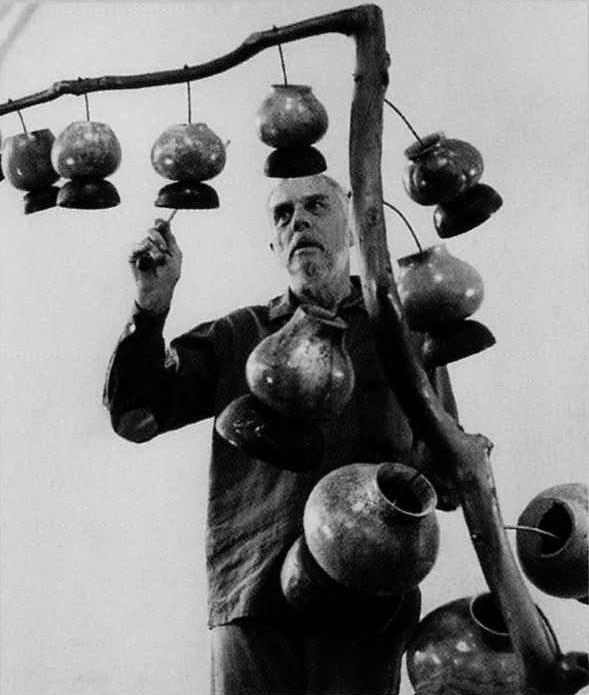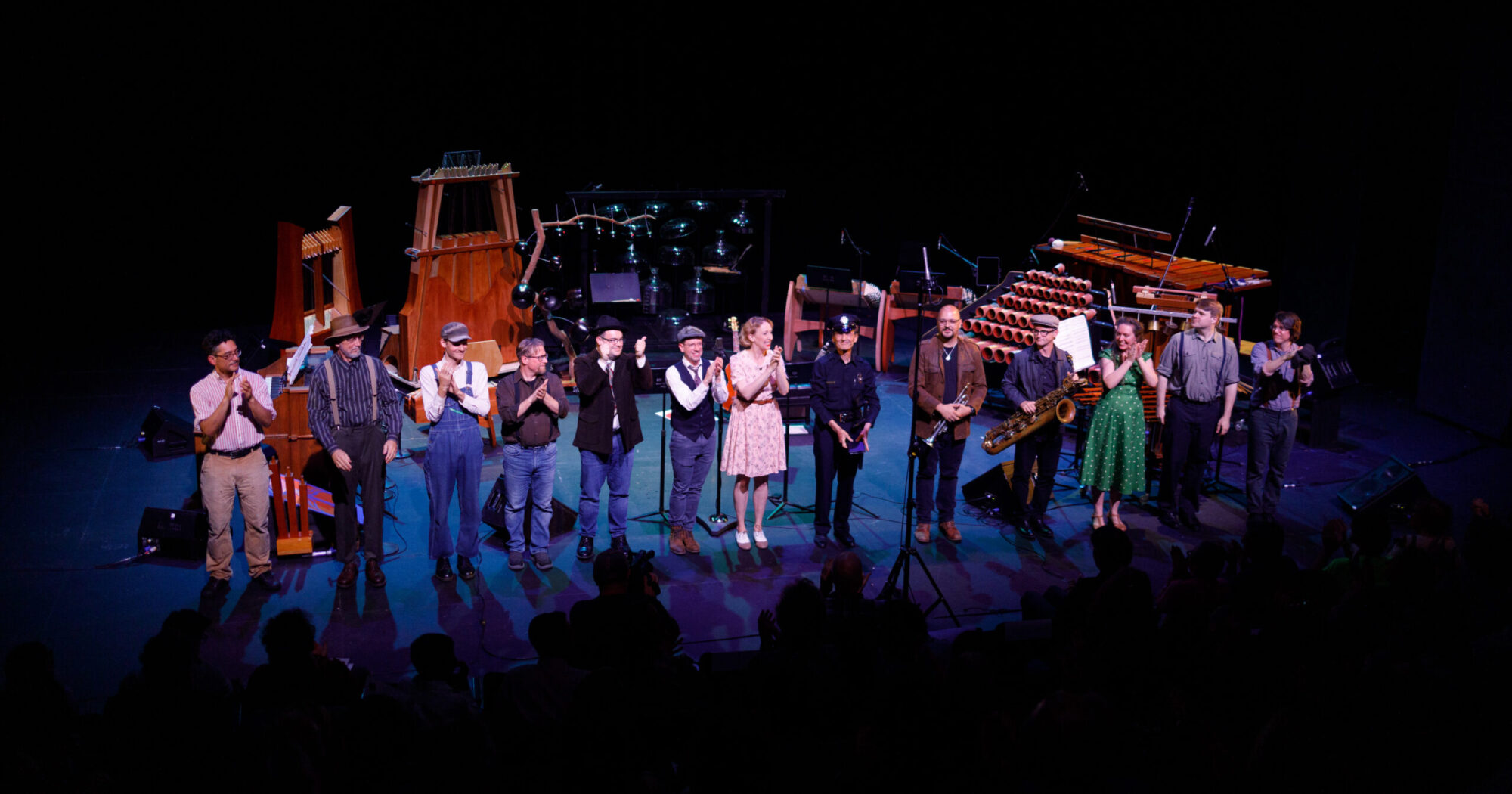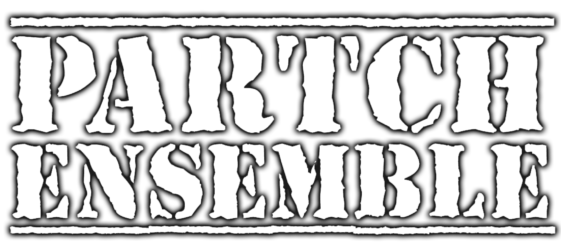
Harry Partch (June 24, 1901 – September 3, 1974) was an American composer, music theorist, and creator of musical instruments. He composed using scales of unequal intervals in Just Intonation, and was one of the first 20th-century composers in the West to work systematically with microtonal scales. Partch invented and constructed his own instruments designed to execute these scales, eventually compiling an orchestra that would become synonymous with his name and compositional output. These custom-made instruments and tuning systems were thoroughly described and annotated, along with his theory and compositional practice, in his book Genesis of a Music (1947). With names like the Chromelodeon, the Quadrangularis Reversum, and the Zymo-Xyl, Partch’s instruments and the music performed on them represent a deliberate pivot away from standards expressed in the Western Classical tradition of music.
Partch composed with scales dividing the octave into 43 unequal tones derived from the natural harmonic series; these scales allowed for tones of smaller intervals than those offered in equal tempered tuning, which employs twelve equal intervals per octave. Partch described his music as corporeal, and distinguished it from abstract music, which he perceived as the dominant trend in Western music since the time of Bach. His earliest compositions were written for solo or small chamber ensemble, primarily driven by the intoned voice set to specific instrumental accompaniment; his later works for large ensemble integrated theater productions in which he expected each of the performers to sing, dance, speak, and play instruments. Ancient Greek theatre and Japanese Noh and kabuki heavily influenced his larger staged works, as well as his broader performance concept of Corporeality.
Partch’s musical study began at an early age, and by age fourteen he was performing in silent movie theaters in Albuquerque, NM. His short stint at the University of Southern California’s School of Music in 1922 ended with his dissatisfaction over the quality of teachers; his inherent self-determination not allowing defeat, he immersed himself in self-study in public libraries, eventually discovering Hermann von Helmholtz’s Sensations of Tone, which opened his mind to the ancient theories of Just Intonation.

